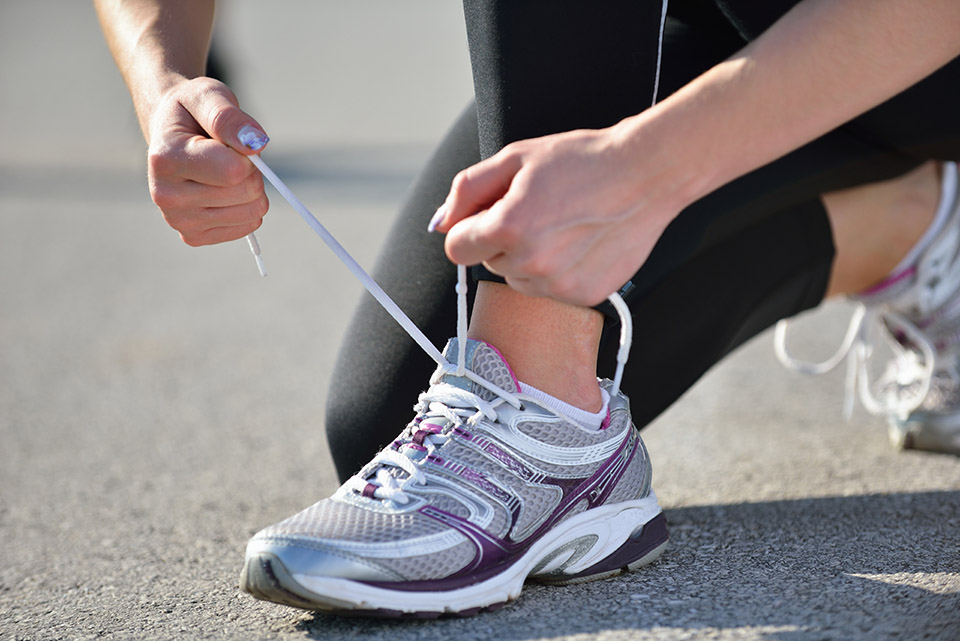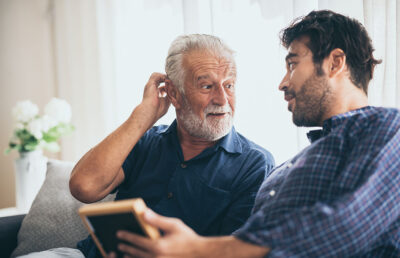If you wear hearing aids, you might be concerned that it comes at the expense of a healthy and active lifestyle. However, if you were active in sports before you got your hearing aids, there’s no reason why you shouldn’t be now. It’s not just acceptable to wear your hearing aids while exercising but is actually even recommended. You only need to follow some simple care steps to ensure your hearing aids’ longevity, and you’re off to a flying start. Here’s what you need to know.
Why wear hearing aids while exercising?
Safety
Personal safety is probably the best reason for why you should wear your hearing aids while exercising. Being aware of your surroundings and able to hear announcements, sirens, approaching vehicles, and those exercising around you plays a key role in keeping you and others around you safe — especially if you’re out running or cycling.
Communication
If you play a team sport, you know how important it is to be able to communicate with the other players during a game. Being able to easily hear can improve your performance and makes you a better teammate. Having a bit of banter with your teammates or people at the gym also makes exercising a lot more fun.
Your favorite songs
There’s always a playlist to get you through a grueling workout session. Many modern hearing aids double as headphones and can connect wirelessly to your phone so you can stream music directly through your hearing aids while working out to keep your spirits up.
Tips for exercising with hearing aids
Secure your hearing aids
If you enjoy some active exercise, you may have to combat the issue of keeping your hearing aids in place to avoid them falling out and getting lost. Fortunately, you have multiple options based on the type of hearing aids you have. If you have Behind the Ear hearing aids, you can wear a headband that goes over them or a close-fitting skull cap to keep them secure — some are made especially for sports with cooling performance fabric designed to absorb moisture. You can also consider a hearing aid clip that attaches to your hearing aids and clips onto your clothes to catch your hearing aids should they fall out.
Minimize moisture
If you’re exercising while wearing your hearing aids, watch out for excessive moisture as this can damage them. While most devices are designed to resist moisture, bacteria can still start growing on them. You can wear a sweatband or use hearing aid sweat covers that can reduce the amount of moisture they’re exposed to. If you’re exercising outdoors, it’s important to ensure that your hearing aids are not in direct contact with sunscreen, insect repellent spray, or excess rain and snow.
Clean your hearing aids after a workout
Following a particularly sweaty session, clean your hearing aids, remove any earwax and debris with a pick and give them ample time to dry out. Sanitize them with an antimicrobial spray to prevent bacterial growth. At night, remove the batteries and leave the battery door open to allow trapped moisture to escape. You can also invest in an inexpensive hearing aid dehumidifier that removes moisture, sanitizes hearing aids and provides a safe place to store them while you sleep. Remember that to ensure the long health of your hearing aids, a routine cleaning should always be a part of your day.
If you prefer not to wear your hearing aids during exercising
While most modern hearing aids are resistant to light moisture, they aren’t designed for underwater use, so you’ll need to take your hearing aids out if you do water sports. Make sure to wear ear plugs so water doesn’t get trapped in your ear.
If you decide to take your hearing aids out while doing other sports, be sure to store them in a safe place and avoid them getting stepped on or lost. If you rather use headphones, make sure not to turn up the volume too high if others are also exercising around you in case they find it bothersome. Always take a shower and dry your ears before reinserting your hearing aid to stop them from coming into contact with residual sweat.
If you’re ever in doubt or have any questions regarding your hearing aids, it’s always best to speak to a professional audiologist for peace of mind.
Feel free to contact us anytime for a consultation to check your hearing, we’re always happy to help. Contact us today!





